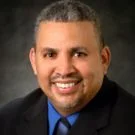It only took one bite from an apple to launch the eternal struggle of good-versus-evil. It began when a snake aka devil slithered its way into the Garden of Eden, but throughout history a litany of villains emerged to represent evil. Today, there are no shortages of villains or examples to demonstrate our capacity for brutality. Daily news chronicles the war between good-and-evil beginning with the coverage of the Russian-Ukrainian War, terrorist acts of Boko Haram, and even the January 6th insurrection at the US Capitol, which remind us of our capacity for brutality. Like King Ahab, Herod, and Jezebel, our villains carry their own vision of what the world should be like and who should rule. During times like these, the Bible warns us in 1 Peter 5:8-9 (MSG):
“Keep a cool head. Stay alert. The Devil is poised to pounce, and would like nothing better than to catch you napping. … You’re not the only ones plunged into these hard times. It’s the same with Christians all over the world. So, keep a firm grip on the faith.”
In dark times, it is easy to lose faith or become discouraged; but notice the caution. We are told to keep a cool head and stay alert. The Bible reminds us that there is a Moses for every Pharoah and a David for every Goliath. Every time a villain raises his head, God calls into action someone with a sense of moral courage deep-rooted in their faith. We call them “heroes.”
Heroes are people willing to sacrifice everything, including their lives, to protect others; often people they don’t even know. Despite everything being stacked against them, they refuse to surrender. In The Psychology of Heroism, author Kendra Cherry explains:
“Heroes touch our hearts, fill us with admiration, and make us reconsider our view of the world. Just look at the plethora of superhero movies these days and you can see how much our society values and loves heroes.”
We love heroes but lately it seems that they have become fictionalized, especially in movies. Consider this, beginning with Iron Man (2008), the Marvel Cinematic Universe (MCU) has become the highest-grossing film franchise of all time with combined earnings of more than $26B. In fact, Avengers: Endgame, when released became the highest-grossing film of all time, earning $2.798 B. The “Heroes,” in these films, possess superhuman skills and powers used to defend “humankind and deliver justice.” But what draws us to these characters isn’t just their skill or power; it’s their “humanity.” We are inspired by their desire to serve others, their ability to show compassion, and their commitment.
The truth is that “heroes” don’t possess superpowers, they’re ordinary, everyday people; often they don’t have any formal training. Harvard Researcher, Rohit Deshpande has studied “heroism” extensively and concludes:
“The one thing that struck me is the people who intervene heroically don’t consider themselves to be heroes. It’s more like they believed they’re doing their human duty, doing what has to be done.”
It is so much easier for us to relate to people when we can see ourselves in them. We are reminded that with faith all things are possible (Mark 9:23, VOICE). Maybe this is why God uses “ordinary people” to accomplish “extraordinary things.”
But if we focus on the “heroic acts” we can easily overlook the quality that seems to unite them, their humanity. We realize that while Moses carried a staff, it was his faith and belief in God that parted the Red Sea. He knew that he was called to deliver his people from bondage, he had a higher purpose. In discussing heroes, Deshpande (cited above) states:
“It seems that they have a much more highly developed moral compass. They have this instinct for doing something good for other people. We find this across a whole series of situations. We find people who risk their own lives to protect people from harm.”
When we recognize that heroes are distinguished not by superpowers but by a higher degree of faith and an advanced moral consciousness, it opens up the possibility of anyone willing to serve others to become a hero. So, as Paul Harvey said, now it’s time for the rest of the story.
If nothing else the study of superheroes, heroism, and leadership brings to the reality that as leaders we are called to do the right thing for the benefit of others. As Dr. John Izzo, so eloquently states:
“Often as leaders (and we are all leaders) we must make the choice to risk popularity or take on strong interests because we feel it is the right thing to do. Stepping up means choosing to take some risks for what you believe in. Leaders are constantly faced with making tough decisions but the hallmark of a good leader vs. a great leader is the bravery to do the right thing.”










